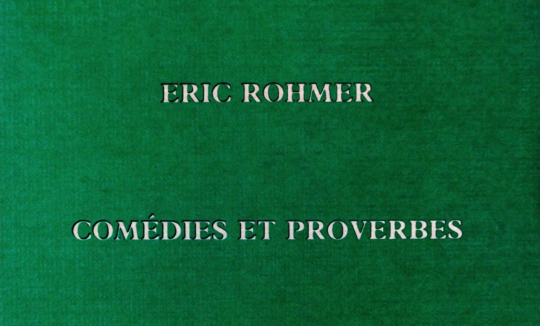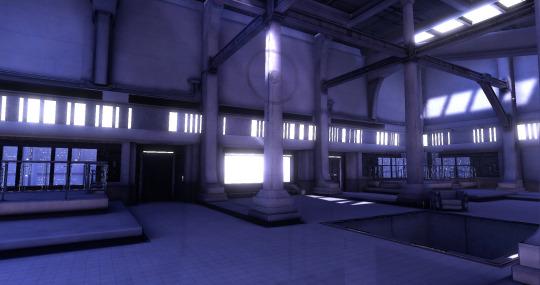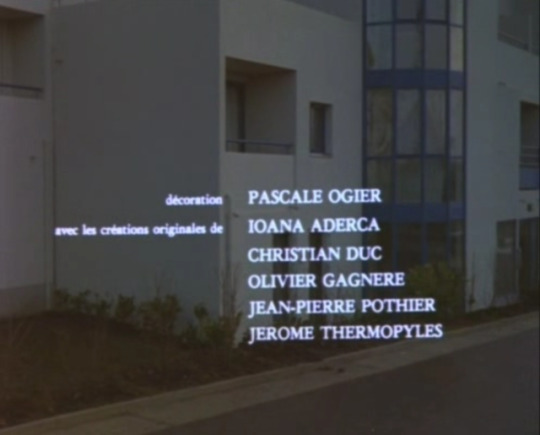#comedies et proverbes
Photo

Éric Rohmer
- Pauline at the Beach
1983
#pauline at the beach#éric rohmer#eric rohmer#frank zappa#bungo fury#captain beefheart#pauline à la plage#comedies and proverbs#comedies et proverbes#french film#lp#vinyl#1983#amanda langlet
663 notes
·
View notes
Text






Comedies and Proverbs #5
"Ah! que le temps vienne où les cœurs s'éprennent!" or "Oh! May the time come when hearts fall in love!"
The Green Ray "Le rayon vert" (1986) dir. Éric Rohmer
#the green ray#le rayon vert#eric rohmer#éric rohmer#comedies and proverbs#comedies et proverbes#screencaps#movie quotes#cinema#movies#film
20 notes
·
View notes
Photo


#les nuits de la pleine lune#éric rohmer#winter#hiver#solitude#loneliness#french#french cinema#français#cinema français#full moon in paris#amour#love#comedies et proverbes
16 notes
·
View notes
Photo

Le Rayon Vert (The Green Ray) -- Éric Rohmer (1986)
“Either you meet someone new or you live with a memory.”
#le rayon vert#the green ray#eric rohmer#french film#drama#romance#film quotes#film stills#Marie Rivière#María Luisa García#Béatrice Romand#mine#comedies and proverbs#Comedies et proverbes
47 notes
·
View notes
Photo







L’ami de mon amie / Boyfriends and Girlfriends
Éric Rohmer. 1987
Open air mall
Grand Place du Général de Gaulle, 95000 Cergy, France
See in map
See in imdb
#eric rohmer#l'ami de mon amie#boyfriends and girlfriends#mall#france#cergy#emmanuelle chaulet#anne-laure meury#Monster#cinema#film#location#google maps#street view#1987#comedies et proverbes#opening titles
49 notes
·
View notes
Photo



L'ami de mon amie (Éric Rohmer, 1987)
#L'ami de mon amie#Éric Rohmer#Rohmer#eric rohmer#Sophie Renoir#quote#change#changes#Boyfriends and Girlfriends#1987#comédies et proverbes#Comedies and Proverbs#my girlfriend’s boyfriend#people#time
4K notes
·
View notes
Photo


Cergy-Pontoise in L’ami de mon amie (1987), dir. Éric Rohmer
#éric rohmer#l'ami de mon amie#my boyfriend's girlfriend#cergy-pontoise#brutalism#architecture#boyfriends and girlfriends#my girlfriend's boyfriend#1987#eric rohmer#comedies and proverbs#comédies et proverbes#french films#french film#france
45 notes
·
View notes
Photo

Les Nuits de la pleine lune, Éric Rohmer (1984)
Cinematography: Renato Berta
| France
#Full Moon in Paris#Les Nuits de la pleine lune#Eric Rohmer#Pascale Ogier#Comedies and Proverbs#Comédies et Proverbes#French Cinema#Women#Cars#Lights#Blue#1984
12 notes
·
View notes
Video
youtube
This one struck me at first for being just. So pretty. The first area you go to has this strange, ethereal like quality, with the particle boxes creating this lovely atmosphere. I kinda wish I knew how to gif things because I want some gifs of these places, they’re so gorgeous.
This memory deals with Clay willingly being captured and rebranded into Subject 16, a position he’d never escape from. William assures him that their Assassin on the inside, Lucy, will be able to get him out once he’s got the information they need. We also get a look into what Clay’s life was like, being a subject for the Animus project. God, and then we find out that Clay’s been a Subject for over a goddamn year. He went in there on February 1st, 2011, and died August 8th 2012. Fuck.
When you get to the Animus room, there’s a pit that you have to fall into, instead of the actual machine. The phrase “down the rabbit hole” kept repeating in my mind as Clay fell, and once we’re “in” the Animus, we start to see images on the walls. They’ve been absent in the last 3 memories, but now they come back in force, as a way to say that the character is digging through memories themselves.
Through Clay, they learned about Ezio Auditore while they were looking for the Apple. You hear various npcs talk about Ezio like we’re back in the ac2 Animus, and it kinda just. Unsettled me for a bit. We know that Clay’s descended from an illegitimate child that Ezio had while Ezio was running around in Venice, so we know that Clay could never access the memories of Ezio with his hands on the Apple. So like... there’s no possible way for Clay to give them what they want, and that’s not his fault. Occasionally we also hear Clay ask for a break, or just a pause, or some answers. He’s not gonna get any.
Clay: What Apple are you looking for, Vidic?
Warren: You really want me to answer that question, Mr. Kaczmarek? If I did, you couldn't reasonably expect to be released at the end of this experiment.
Clay: In which river do you throw bodies?
Warren: Is that fear I hear in your voice, Subject 16? It should be.
God I wanna get rid of Vidic so bad.
The Letter you can pick up is from Lucy to Clay, and it implies that he tried to get to know her the same way Desmond did--or would do.
Clay,
Your kind words are appreciated. Work continues on schedule. Vidic is busy dealing with the execs, while I'm running experiments on Subject 15.
During drills, focus on getting inside the Animus codebase. I'm already investigating the archives.
Don't stress about the operation. I'll protect you once you're in here, I promise.
-Lucy
It interests me that Subject 15 was also in Abstergo’s facilities while they were working on Clay as well. I was kinda vaguely under the impression that there was only one Subject at a time? Idk. Then again, we also saw dozens of Animuses--Animi?--in the floor of Abstergo, when Lucy broke Desmond out.
The letter is also found right when Clay realizes something is wrong, and the Bleeding Effect takes hold -- The last bits of this memory are dedicated to just how monumentally fucked Clay gets, he starts hearing things by multiple voices and languages, the screen gets distorted, and he’s seemingly trapped in a maze of portals. Except they’re the same portals, over and over, and all they do is lead him back into themselves.
Some of the dialogue you can hear is the Gettysburg Address, meaning that Clay had an ancestor that listened to it. Another is an Italian proverb; “Dai nemici mi guardo io, dagli amici mi guardi Iddio!” which translates to “I can protect myself from my enemies, may God protect me from my friends!"
The last one gave me pause tho, because it’s the opening line to Les Femmes et le Secret, a fable by Jean de La Fontaine.
La Fontaine: Rien ne pèse tant qu'un secret.
(Translated): "Nothing weighs on us so heavily as a secret"
Now, the actual fable is ... hm, a bit tongue in cheek? I think? Granted, I’m not familiar with his works at all, but the actual fable is about exaggeration, and how you can’t trust a woman to keep a secret. But also it’s a subversion, because the man takes the place of the “woman” by creating a lie just to have it spread around. I’m kinda wondering at the significance that this has, because while the line is very interesting in the context of Clay and the secrets he has, it’s not something I would have immediately pegged him for. That being said, it’s implied that Clay/his ancestor heard this directly from La Fontaine himself. There’s also two adaptions of this fable into a comedic opera, and a comedy play, which could also be where this is being heard. There’s also the idea that if it was because of the comedic play, then that brings another layer to the questioning of Clay’s sanity, because the line itself about secrets is supposed to be humorous, just like all the secrets that Clay carries. A sort of irony, if you will.
This is one of those literary references that makes me wonder just what the intent the devs had behind it -- is it there just for that first line, or did the devs actually intend for the context of the full fable? Maybe they chose it because it’s well known, like how the Gettysburg address is, I dunno if this is a line that’s immediately recognizable.
Last bit, cause this is getting kinda long. There’s another code fragment you can find, as well as a hidden symbol. Luckily the photo I found has both, so!

The lights along the bar of the room are actually morse code, which reads "Beware the dautnhter of the sixth." It’s supposed to be daughter, but some of the letters aren’t spaced quite right. I’m not sure what it refers to, but my initial thought was Lucy. However, I can’t help but wonder if it’s also a reference to Juno, because in mythology, Juno was the daughter of Saturn, who was one of 6 male titans, and Rhea, one of 6 female titans. Idk if any of that is actually true, but whatever.
The second bit is the symbol on the pillar -- a circle with a dot inside it, an ancient symbol used to represent the sun. It’s only viewable from a particular angle, which is closer to where Lucy usually stood in ac1. By this point we’re well aware that the sun is the main threat, but I can’t help but wonder if the two messages are supposed to be read together, but if so, how.
I’m doin a big think
#creator plays ac rev#creator plays ac lost archive#if any translations are wrong i took it straight from the wiki
4 notes
·
View notes
Text
the error of
Eltering “eher 1
eltering heeft: wat
behoudt 2 eltering wood 3
eltering your territories 4
alarm; on eltering 5
the most active part in eltering 6
eltering in 7
eltering in her own 8
eltering a note of 9
eltering. ppr. Fainting or languishing with 10
black clouds, lies “eltering and alone, 11
from end to end thereof, of Eltering 12
Eltering freholdes of 13
eltering arms 14
to say enough of the effect this old-world place has upon one; el. tering 15
and Eltering when cold . It should be 16
eltering in 17
eltering from the fierce 18
eltered porch. doesn’t mind the cold. The error of 19
eltering. devices 20
sources
1
OCR misread of “alterius” (?), ex Antonius (Andreas.), Scriptum Antonij Andree in arte veteri [et] in diuisionibus boetij cum questionibus eiusdem (1508) : 56
2
in question no 12, Grondbeginzelen der 2de geval, (on reading the compass), in Bernardus Joannes Douwes, Tafelen, bevattende: 1o. de sinussen, tangenten en secanten (1779) : 248
3
ex Mallet’s Poems, “Edwin and Emma” (stanza 1) in Samuel Johnson, The Works of the Poets of Britain and Ireland; with prefaces biographical and critical. vol. 7 (1800) : 216
4
in “Abstract of Foreign Occurences” (June 1803), in The Gentleman’s Magazine : and Historical Chronicle for the year 1803 73 (93?), Part I (1803) : 785
5
ex (angry) review of “An Account of two Cases of Gout, which terminated in Death, in Consequence of the external Use of Ice and cold Water,” by A. Edlin, in The London Medical and Physical Journal 13 (1805) : 274
6
OCE misread of al-tering, in extract from the Boston Recorder, signed Hollis, (January 29, 1829), in Facts and documents in relation to Harvard College (1829) : 83
7
ex “Barbarossa: A tragedy in five acts” by Dr. Brown (first appeared in 1755), in The British Drama : A collection of the most approved tragedies, comedies, operas, & farces. Vol 1 (of 2); (Philadelphia, 1833) : 209
8
ex OCR misread of weltering in “A horrible murder was committed...” (Monday, February 20, 1860) in [Francis] Vincent’s Semi-annual United States Register : A Work in which the principal events of every half-year occurring in the United States are recorded, each arranged under the day of its date. This volume contains the events transpiring between the 1st of January and 1t of July, 1860. (1860) : 121
(aside: a remarkable compendium)
9
snippet view, OCR misread of (faint) typewritten transcription [March 20, 1865], in Annals of Savannah, 1850-1937: A Digest and Index of the Newspaper Record of Events and Opinions 16:1 here
worldcat entry : A group project, sponsored by various organizations and individuals and partly based on the WPA records transferred to the Savannah Public Library; abstracted from the files of the Savannah Morning News
10
OCR misread, text obscured by gutter, ex Noah Webster, A dictionary of the English language, Revised and enlarged by Chauncy A. Goodrich (Tenth edition, revised and corrected, 1866) : 1001
11
OCR misread of “sheltering” in verse (by Barry Cornwall) closing Chapter III, “History of a marine aquarium,” in Shirley Hibberd (1825-90 *) her Rustic Adornments for Homes of Taste (London, 1870): 30
12
OCR misread of “fil-tering” in short description of patent no. 366,398 (Oil-Press), in Official Gazette of the United States Patent Office (July 12, 1887) : here
13
ex Appendix C (“A not of Certen Artkles of contriversie”) for “Bywell,” by the Rev. A. Johnson., Vicar of Healey, in Archaeologia Aeliana, Or, Miscellaneous Tracts Relating to Antiquities. Published by the Society of Antiquaries of Newcastle-upon-Tyne. Volume XIII. New Series. (1889) : here
14
ex Table 19, “Showing the receipts of orphan asylums and homes for the friendless for the year ending September 30, 1891,” concluded, in Annual Report of the [State] Board of Charities, for the year 1891 (Albany, 1892) : here
15
snippet only, The Sunday Magazine (1894) : 816
16
ex preparation of Infusum abri (infusion of jequirity), in Sam’l O. L. Potter (1846-1914 *) his A Handbook of Materia Medica, Pharmacy, and Therapeutics (Ninth edition, revised and enlarged, 1902) : 75
17
ex Paulina Brandreth (1885-1946), Alvise : A Tragedy in Three Acts (1906) : 63
18
ex “A hundred years ago. True tales of the Year 1807.” V.—The capitulation of Monte Video, in Chatterbox (1907) : 371
19
Journal of the Outdoor Life 3:9 (October 1906), landings at 332, 333 and 335
Official organ of the National Association for the Study and Prevention of Tuberculosis, pubished monthly at Adirondack Cottage Sanitarium, Trudeau P. O. (Saranac Lake), N.Y.
20
OCR misread, Gertrude Jekyll, “Some Sheltering Devices” (including whortleberry, and Pea. Lathyris Pubescens), in The Garden 80 (March 4, 1916) : 117
—
Elt. To knead. N. Elt or ilt, is also a spaded sow. Exm.
ex Francis Grose (1731-91, “antiquary, draughtsman and lexicographer,” *) his A provincial glossary : with a collection of local proverbs, and popular superstitions (London, 1787) : 52
and, from Joseph Wright (1855-1930) his English Dialect Dictionary —
Elt. v.
1. to knead dough; to stir the dough previously kneaded to a proper consistency for baking.
2. to injure anything by constant or rough handling.
3. to become soft or moist, as earth when damp.
hence, elted up...
4. to slave or toil at working in the ground. Also used fig(uratively). to meddle with, interfere.
hence,
Elted, pp. bemired, covered with dirt from working in the earth or dirt.
—
all tagged quatrains
all tagged lexicon
#dirt#kneading#approximate poetry#lexicon#method#onsense#quatrains#rustic adornments#working in the ground#Joseph Wright
4 notes
·
View notes
Photo





Béatrice Romand in Éric Rohmer’s Claire's Knee (1970), Love in the Afternoon (1972), Le Beau Mariage (1982), The Green Ray (1986), and Autumn Tale (1998)
#béatrice romand#beatrice romand#éric rohmer#eric rohmer#claire's knee#love in the afternoon#le beau mariage#the green ray#autumn tale#le genou de claire#chloe in the afternoon#l'amour l'après midi#the good marriage#le rayon vert#conte d'automne#an autumn tale#comedies and proverbs#comedies et proverbes#six moral tales#six contes moraux#Tales of Four Seasons#Contes des quatre saisons#french film
173 notes
·
View notes
Text





Comedies and Proverbs #3
"Qui trop parole, il se mesfait" or "A wagging tongue bites itself"
Pauline at the Beach "Pauline à la plage" (1983) dir. Éric Rohmer
#pauline at the beach#pauline a la plage#eric rohmer#éric rohmer#comedies and proverbs#comedies et proverbes#screencaps#movie quotes#cinema#movies#film
18 notes
·
View notes
Video
youtube
ATTENTION, HUMOUR CORROSIF ! Un visuel à personnaliser en boutique :- Spreadshop : https://chacunsonbonmotchacunsonteeshirt.myspreadshop.fr/humoriste- Tostadora : https://www.tostadora.fr/chacun_son_bon_mot_14/tous_modeles -30% sur tout dès 3 articles avec NOEL30 !- Spreadshirt : https://www.spreadshirt.fr/shop/design/attention+humour+corrosif+t-shirt+homme-D63959f44b063272d9f16cc5f?sellable=ekjALQvXXYuLoZ1O8D54-6-7 jusqu'à -35% !- Redbubble : https://www.redbubble.com/shop/ap/134631303 -30 % sur les tote bags et la déco avec le code WINTER22 !- Zazzle : https://www.zazzle.fr/z/7xihpkkn?rf=238490267840558249 -20% avec le code SHOPXMAS2022 !#marrant #comique #humoriste #standUp #sketch #oneManShow #ironie #cynisme #humourNoir #rire #TPMP #Quotidien #sourire #blague #gag #comedie #lol #mdr #humour #citation #punchline #proverbe #JeuxDeMots #tshirt #poster #tableau #mug
0 notes
Photo

“On peut pas mettre la cuillère là-dedans! À va fondre!” Parole de Bobby Painchaud. Dans cuisine avec Bobby Painchaud Somme toute, je vous souhaites un merci très profond et je vous indique à ce stade de rester très alimentés grâce à des nutriments et vitamines propices à vôtre bonne et due forme physique, dis-je bien. #cuisine #cuisinemaison #cuisinedesign #cuisiner #cuisinerapide #quebec #quebecois #cullinaire #bobby #bobbypainchaud #vedette #personalite #starsysteme #sourire #joyeux #drole #comedie #proverbe #cuisto #mangersainement #mangermieux #nourriture #nourrituresaine #homme #emission #populaire #conseil #piment #sauce #jalapeno (at Saint-Gabriel-de-Brandon, Quebec) https://www.instagram.com/p/CWY1IIglspk/?utm_medium=tumblr
#cuisine#cuisinemaison#cuisinedesign#cuisiner#cuisinerapide#quebec#quebecois#cullinaire#bobby#bobbypainchaud#vedette#personalite#starsysteme#sourire#joyeux#drole#comedie#proverbe#cuisto#mangersainement#mangermieux#nourriture#nourrituresaine#homme#emission#populaire#conseil#piment#sauce#jalapeno
0 notes
Photo

THE PROPHECY OF DANIEL - From The Douay-Rheims Bible - Latin Vulgate
Chapter 10
INTRODUCTION.
DANIEL, whose name signifies "the judgment of God," was of the royal blood of the kings of Juda, and one of those that were first of all carried away into captivity. He was so renowned for his wisdom and knowledge, that it became a proverb among the Babylonians, "as wise as Daniel;" (Ezech. xxviii. 3.) and his holiness was so great from his very childhood, that at the time when he was as yet but a young man, he is joined by the Spirit of God with Noe and Job, as three persons most eminent for virtue and sanctity. Ezech. xiv. He is not commonly numbered by the Hebrews among the prophets, because he lived at court, and in high station in the world: but if we consider his many clear predictions of things to come, we shall find that no one better deserves the name and title of a prophet; which also has been given him by the Son of God himself. Mat. xxiv. Mark xiii. Luke xxi.) Ch. --- The ancient Jews ranked him among the greatest prophets. Jos. Ant. x. 12. and 1 Mac. ii. 59. Those who came after Christ began to make frivolous exceptions, because he so clearly pointed out the coming of our Saviour, (Theod.) that Porphyrius has no other method of evading this authority except by saying, that the book was written under Epiphanes after the event of many of the predictions. S. Jer. --- But this assertion is contrary to all antiquity. Some parts have indeed been questioned, which are found only in Greek. They must, however, have sometime existed in Heb. or Chal. else how should we have the version of Theodotion, which the Church has substituted instead of the Sept. as that copy was become very incorrect, and is now lost? C. --- Some hopes of its recovery are nevertheless entertained; and its publication, at Rome, has been announced. Kennicott. --- In a title, it seems to make the Daniel visited by Habacuc, a priest; but it is abandoned. C. --- This version of course proves that the original was formerly known; and the loss of it, at present, is no more decisive against the authenticity of these pieces, that that of S. Matthew's Heb. original, and of the Chaldee of Judith, &c. will evince that their works are spurious. H. ---Extracts of (C.) Aquila and Sym. seen by S. Jerom, (W.) are also given in the Hexapla. Origen has answered the objections of Africanus, respecting the history of Susanna; and his arguments are equally cogent, when applied to the other contested works. The Jews and Christians were formerly both divided in their sentiments about these pieces. C. See S. Jer. in Jer. xxix. 12. and xxxii. 44. --- But now as the Church (the pillar of truth) has spoken, all farther controversy ought to cease; (H.) and we should follow the precept, Remove not the landmarks which thy fathers have placed. Deut. xix. 14. See N. Alex. t. ii. S. Jerom, who sometimes calls these pieces "fables," explains himself, by observing, that he had delivered "not his own sentiments," but those of the Jews: quid illi contra nos dicere soleant. C. --- If he really denied their authority, his opinion ought not to outweigh that of so many other (H.) Fathers and Councils who receive them. They admit all the parts, as the Council of Trent expressly requires us to do. See S. Cyp. &c. also the observations prefixed to Tobias, (W.) and p. 597. H. --- Paine remarks that Daniel and Ezechiel only pretended to have visions, and carried on an enigmatical correspondence relative to the recovery of their country. But this deserves no refutation. By allowing that their works are genuine, he cuts up the very root of his performance. Watson. --- Daniel, according to Sir Is. Newton, resembles the Apoc. (as both bring us to the end of the Roman empire) and is "the most distinct in order of time, and easiest to be understood; and therefore, in those things that relate to the last times, he must be made a key to the rest." Bp. Newton. --- Yet there are many difficulties which require a knowledge of history; (S. Jer. W.) and we must reflect on the words of Christ, He that readeth, let him understand. Mat. xxiv. 15. Daniel (H.) is supposed to have died at court, (C.) aged 110, having written many things of Christ. W. --- His name is not prefixed to his book, yet as Prideaux observes, he sufficiently shews himself in the sequel to be the author. H.
The additional Notes in this Edition of the New Testament will be marked with the letter A. Such as are taken from various Interpreters and Commentators, will be marked as in the Old Testament. B. Bristow, C. Calmet, Ch. Challoner, D. Du Hamel, E. Estius, J. Jansenius, M. Menochius, Po. Polus, P. Pastorini, T. Tirinus, V. Bible de Vence, W. Worthington, Wi. Witham. — The names of other authors, who may be occasionally consulted, will be given at full length.
Verses are in English and Latin.
HAYDOCK CATHOLIC BIBLE COMMENTARY
This Catholic commentary on the Old Testament, following the Douay-Rheims Bible text, was originally compiled by Catholic priest and biblical scholar Rev. George Leo Haydock (1774-1849). This transcription is based on Haydock's notes as they appear in the 1859 edition of Haydock's Catholic Family Bible and Commentary printed by Edward Dunigan and Brother, New York, New York.
Chapter 10
Daniel having humbled himself by fasting and penance seeth a vision, with which he is much terrified; but he is comforted by an angel.
[1] In the third year of Cyrus king of the Persians, a word was revealed to Daniel surnamed Baltassar, and a true word, and great strength: and he understood the word: for there is need of understanding in a vision.
Anno tertio Cyri regis Persarum, verbum revelatum est Danieli cognomento Baltassar, et verbum verum, et fortitudo magna : intellexitque sermonem : intelligentia enim est opus in visione.
[2] In those days I Daniel mourned the days of three weeks.
In diebus illis ego Daniel lugebam trium hebdomadarum diebus :
[3] I ate no desirable bread, and neither flesh, nor wine entered into my mouth, neither was I anointed with ointment: till the days of three weeks were accomplished.
panem desiderabilem non comedi, et caro et vinum non introierunt in os meum, sed neque unguento unctus sum, donec complerentur trium hebdomadarum dies.
[4] And in the four and twentieth day of the first month I was by the great river which is the Tigris.
Die autem vigesima et quarta mensis primi, eram juxta fluvium magnum, qui est Tigris.
[5] And I lifted up my eyes, and I saw: and behold a man clothed in linen, and his loins were girded with the finest gold:
Et levavi oculos meos, et vidi : et ecce vir unus vestitus lineis, et renes ejus accincti auro obrizo :
[6] And his body was like the chrysolite, and his face as the appearance of lightning, and his eyes as a burning lamp: and his arms, and all downward even to the feet, like in appearance to glittering brass: and the voice of his word like the voice of a multitude.
et corpus ejus quasi chrysolithus, et facies ejus velut species fulguris, et oculi ejus ut lampas ardens : et brachia ejus, et quae deorsum sunt usque ad pedes, quasi species aeris candentis : et vox sermonum ejus ut vox multitudinis.
[7] And I Daniel alone saw the vision: for the men that were with me saw it not: but an exceeding great terror fell upon them, and they fled away, and hid themselves.
Vidi autem ego Daniel solus visionem : porro viri qui erant mecum non viderunt, sed terror nimius irruit super eos, et fugerunt in absconditum.
[8] And I being left alone saw this great vision: and there remained no strength in me, and the appearance of my countenance was changed in me, and I fainted away, and retained no strength.
Ego autem relictus solus vidi visionem grandem hanc : et non remansit in me fortitudo, sed et species mea immutata est in me, et emarcui, nec habui quidquam virium.
[9] And I heard the voice of his words: and when I heard, I lay in a consternation, upon my face, and my face was close to the ground.
Et audivi vocem sermonum ejus : et audiens jacebam consternatus super faciem meam, et vultus meus haerebat terrae.
[10] And behold a hand touched me, and lifted me up upon my knees, and upon the joints of my hands.
Et ecce manus tetigit me, et erexit me super genua mea, et super articulos manuum mearum.
[11] And he said to me: Daniel, thou man of desires, understand the words that I speak to thee, and stand upright: for I am sent now to thee. And when he had said this word to me, I stood trembling.
Et dixit ad me : Daniel vir desideriorum, intellige verba quae ego loquor ad te, et sta in gradu tuo : nunc enim sum missus ad te. Cumque dixisset mihi sermonem istum, steti tremens.
[12] And he said to me: Fear not, Daniel: for from the first day that thou didst set thy heart to understand, to afflict thyself in the sight of thy God, thy words have been heard: and I am come for thy words.
Et ait ad me : Noli metuere, Daniel : quia ex die primo, quo posuisti cor tuum ad intelligendum ut te affligeres in conspectu Dei tui, exaudita sunt verba tua : et ego veni propter sermones tuos.
[13] But the prince of the kingdom of the Persians resisted me one and twenty days: and behold Michael, one of the chief princes, came to help me, and I remained there by the king of the Persians.
Princeps autem regni Persarum restitit mihi viginti et uno diebus : et ecce Michael, unus de principibus primis, venit in adjutorium meum, et ego remansi ibi juxta regem Persarum.
[14] But I am come to teach thee what things shall befall thy people in the latter days, for as yet the vision is for days.
Veni autem ut docerem te quae ventura sunt populo tuo in novissimis diebus, quoniam adhuc visio in dies.
[15] And when he was speaking such words to me, I cast down my countenance to the ground, and held my peace.
Cumque loqueretur mihi hujuscemodi verbis, dejeci vultum meum ad terram, et tacui.
[16] And behold, as it were the likeness of a son of man touched my lips: then I opened my mouth, and spoke, and said to him that stood before me: O my Lord, at the sight of thee my joints are loosed, and no strength hath remained in me.
Et ecce quasi similitudo filii hominis tetigit labia mea : et aperiens os meum locutus sum, et dixi ad eum, qui stabat contra me : Domine mi, in visione tua dissolutae sunt compages meae, et nihil in me remansit virium.
[17] And how can the servant of my lord speak with my lord? for no strength remaineth in me, moreover my breath is stopped.
Et quomodo poterit servus domini mei loqui cum domino meo? nihil enim in me remansit virium, sed et halitus meus intercluditur.
[18] Therefore he that looked like a man touched me again, and strengthened me.
Rursum ergo tetigit me quasi visio hominis, et confortavit me,
[19] And he said: Fear not, O man of desires, peace be to thee: take courage and be strong. And when he spoke to me, I grew strong: and I said: Speak, O my lord, for thou hast strengthened me.
et dixit : Noli timere, vir desideriorum : pax tibi : confortare, et esto robustus. Cumque loqueretur mecum, convalui, et dixi : Loquere, domine mi, quia confortasti me.
[20] And he said: Dost thou know wherefore I am come to thee? and now I will return, to fight against the prince of the Persians. When I went forth, there appeared the prince of the Greeks coming.
Et ait : Numquid scis quare venerim ad te? et nunc revertar ut praelier adversum principem Persarum. Cum ego egrederer, apparuit princeps Graecorum veniens.
[21] But I will tell thee what is set down in the scripture of truth: and none is my helper in all these things, but Michael your prince.
Verumtamen annuntiabo tibi quod expressum est in scriptura veritatis : et nemo est adjutor meus in omnibus his, nisi Michael princeps vester.
Commentary:
Ver. 1. Third. This concurs with the first of Darius. Cyrus then reigned in Persia, and the king is here often mentioned, as the vision happened near it, on the banks of the Tigris. Only twenty-one days had elapsed since the former. --- Strength. Heb. "warfare," or determinate time. Job vii. 1. This shall surely take place, but not soon. C. --- For. Prot. "and had understanding," &c. H. --- He was informed of the meaning, or strove to know what the preceding vision denoted. C. --- Pharao and Baltassar were not prophets, as they did not comprehend what they saw. For understanding is requisite, in order that a vision may be prophetical. S. Tho. ii. 2. q. 175 a. 2. W.
Ver. 2. Weeks. Marsham says twenty-one years. But it means only so many days. He began to mourn on the third of Nisan, and continued fasting (v. 4) it seems even on the sabbaths, and on the feast of Passover, till the 24th. C. --- He was grieved that the people did not make use of the leave granted by Cyrus; (Theod.) or because the Samaritans had prevailed at court to have the temple forbidden; (Usher, A. 3470, and 1 Esd. i. 14.) or rather because he could not fully understand the former visions. C. ix. 30. and xii. 9. &c. C.
Ver. 5. Linen. Heb. baddim. --- Finest. Heb. uphaz, (H.) from Phasis or Ophir.
Ver. 6. Chrysolite. Heb. "Tharsis." This precious stone was perhaps greenish.
Ver. 10. Hand; the Holy Ghost, or rather the angel Gabriel.
Ver. 11. Desires most amiable. C. --- This new title is given to comfort the prophet. W.
Ver. 13. The prince, &c. That is, the angel guardian of Persia: who, according to his office, seeking the spiritual good of the Persians, was desirous that many of the Jews should remain among them. Ch. --- S. Jerom, &c. explain it of the angel guardian. W. --- Each country has an archangel over it, as individuals have an angel. Others assert that this was an evil angel; for how could a good one oppose so long the will of God? Yet this argument may be retorted, as evil spirits themselves must comply. It seems, therefore, that Cyrus was exhorted by the good angels to invade the Chaldeans, and thus to liberate God's people. He was afraid of the hazardous attempt, and free-will may resist the inspirations of God. --- One, or "prince." C. --- Michael, and the guardian of Daniel, joined their prayers for the liberation of the Jews. v. 20. W.
Ver. 14. Days. It will not soon take place; or, I have many things to tell.
Ver. 20. To thee? He awakens his attention (v. 14. C.) and gratitude. H. --- Prince, angel guardian; or Alexander, who would one day rout the Persians. C. xi. 2. C.
Ver. 21. Of truth, in the former sealed visions. C. - Your prince. The guardian general of the Church of God, (Ch.) as he was of the synagogue. C.
1 note
·
View note
Photo






Les nuit de la pleine lune / Full Moon in Paris
Éric Rohmer. 1984
Apartment
9 Cours des Lacs, 77185 Lognes, France
See in map
See in imdb
#Éric rohmer#les nuits de la pleine lune#full moon in paris#pascale ogier#tchéky karyo#apartment#paris#france#lognes#movie#cinema#film#location#google maps#street view#comedies et proverbes#1984
33 notes
·
View notes